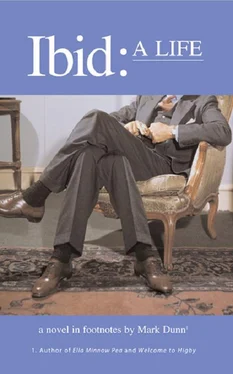I am singer in a place queer in its blood-lock, yet sustenance-sustaining,
Carnivorous, cacophonous cavern of the deep, the dark, the dangerous, the men of meat.
I brush the young one lightly, gently, my hand searching, tentative in its touch.
To touch the shoulder, the hocks, the lumber limbs of the one with the astral eyes.
He pushes me back, a look of warning, a look of one who becomes master even in his youth.
Hands unsuppled by the work of the trade.
His baritone cry, warm and felt-lined, deep in the timbre of youthful man-gruff: “Stop looking at me.
Stop touching me.
You’re standing in a blood pool, you old fool.”
Fool I am but fool I be.
I touch him again, softly, a gentle stroke across the sullied apron pulled taut against his, no-doubt, fur-tuft chest.
Another push in answer.
In furrowed scorn.
“I told you to stop touching me. Touch me again, and I’ll pop you with this calf carcass.”
I laugh.
I embrace the folly of my petulant spirit, and am again about the pursuit of this fine avatar of male youth who carves the meat with the sheer brawn of his musky man-paw.
My hand reaches out again…
And is met by the darkness of day-sleep, of sudden somnolent ensilencing.
The flame of consciousness doused.
Upon my back I enter the Packing House of Dreams.
Where men welcome my wandering touch.
These men of meat!
A side note about Dorothy Musgrove: the poet moved to Washington, D.C., in 1932 and soon became a permanent, albeit minor, fixture in the “den of power” as she liked to call the city. Trading Clara’s literary salon for a political one, she enjoyed frequent invitations to sup with D.C.’s “living monument” Alice Roosevelt Longworth and other capital celebrities. Her low profile generally kept her name out of the local press.
The one notable exception occurred in 1936 when Dorothy found herself the victim of Seattle Congressman Marion Zioncheck’s drunken joy ride through the streets (and sidewalks) of downtown Washington. Struck in the head by an airborne trash can lid, she declined medical attention and proceeded to the home of Mrs. Longworth where she was expected for an intimate dinner party. With her head bloodied from the accident, she launched into a send-up of Teddy Roosevelt’s legendary address following the nearly fatal attempt made upon his life during the 1912 Presidential campaign, parodying Teddy with precision: “I want you all to be very quiet. Perhaps you’re not aware that I have been hit in the head by the lid of a garbage can knocked skyward by a drunken Congressman.” According to Dorothy’s recollection of the evening, “fun-loving Alice was reduced to hysterics, dropping to the floor and pummeling the boards in a fit of apoplectic mirth.” (Dorothy Musgrove, Things I Remember , [Baltimore: Boysenberry Press, 1960], 137-40.)
19. “This is my brother Lyndon.”Clara’s younger brother Lyndon Tosch Gleason was equally literary and best known for his Fork Creek Collection , (Redding, California: Di Prisco Press, 1955), taking as its inspiration, Edgar Lee Master’s Spoon River Anthology . The work, originally mistaken for parody, was, in fact, a sincere effort to tell the encapsulated stories of the inmates of a large state institution for the intellectually challenged. Exhibiting the cruel insensitivity of its day, the asylum was officially known as the Illinois State Institution for Imbeciles, Idiots, Cretins, and Morons, and more informally as “Dummy House.” The book sold few copies, for it was nearly unreadable. An example follows:
Mickey Spenders
I got porridge! Yum. Mumyum. Porridge!
I like porridge. Sugar it. Sugar it. Yum.
More more porridge!
Timmy!
Hey Timmy, get porridge!
Thatzit.
Thatzit.
Now Timmy got porridge!
In the mouth, Timmy! In the mouth!
Uh oh.
Timmy got porridge hair.
Yee yee yee yee.
Hey, hey, hey, hey!
Hug me.
20. On April 20, 193 °Clara and I were married by a justice of the peace in Reno, Nevada.Jonathan Blashette to Andrew Bloor, AnB.
21. “So, you’re finally tying the knot at the boyish age of forty-two!”Bloor knew that he would not approve of Clara when they finally met. His intuition was confirmed on a visit to New York two months later. Bloor wrote in his journal that “as suspected, I found her to be totally lacking in charm and grace,” and “a regular foghorn with hips.” Still, it doesn’t appear that he ever revealed his true feelings to Jonathan, apparently aware that when the relationship finally soured (as Bloor was sure it inevitably would) he would not wish to be among those dancing the “I-told-you-so shuffle”—a dance which, Bloor noted, is never flattering and often “puts one at risk of being removed from the dance floor altogether.” Bloor’s ostensible (but privately grudging) approval of Jonathan’s wife seemed, however, to endear Jonathan to his mentor all the more, the two growing even closer, their correspondence much more frequent and illuminating of their emotional lives during this period. Andrew Bloor to Jonathan Blashette, 27 April1930, JBP.
22. Jonathan kept his Greenwich Village brownstone as a pied-à-terre.It was an ideal arrangement. The old farm house in Wallywaycong, New Jersey, was large enough to hold Clara, her family and hangers-on and all her creatures great and small. The house in the city served as the perfect “get-away” when Jonathan needed a quiet break from the “Clarathrong.”
23. “What do I do with my arboreal stepson?”Jonathan’s Diary, 18 July1930. Granted, it seemed that half the boys in North America were going for the national tree-sitting record in 1930, but fourteen-year-old Hunter’s choice of Wallywaycong’s venerated Founder’s Oak, which stood on the front lawn of the county courthouse, was a controversial choice. Even when following the crazes of the day, Jonathan’s stepson had a taste for rebellion that placed him in a category by himself. Climbing the oak may have looked to some like a simple act of youthful mischief, but to others it represented a disturbing offensive against tradition and authority.
I have found wildly conflicting accounts of the events surrounding town historian Fitzhugh Dowdy’s hospitalization for nervous exhaustion on the day that Hunter was finally “de-treed.” I am more inclined to believe Dowdy’s own — albeit heavily embroidered — account, passed down to us through his dairy (Dowdy Family Papers). If nothing else, the entries pertaining to the tree-sitting episode shed some light on the man’s fragile mental state at the time.
Saturday, July 19, 1930. I rise and hurry to the courthouse to find that the monkey is still there — still ensconced in that tree, desecrating it by his very presence, with the three-legged monkey stepfather doing nothing whatsoever to remove the child. Nor do any of the county commissioners seem alarmed by his presence. Damn them all. No tree — but especially this, the most cherished in our city — deserves such a fouling. I have a dunker and coffee while glowering up at the intruder. The dunker and coffee are too much for my weak constitution. As I stand retching without product, I watch the boy through rage-filled eyes. Between undulating body heaves I rail and remonstrate and command the vile man-cub through the most easily decipherable gesticulation to remove himself. Yet he does not. Moreover, he taunts me, audaciously asking me with mischievous gloat to catch the bag containing his evacuants, because his chum Mikey has yet to arrive to cart the foul-smelling effluents off. I find that I am having trouble standing erect from the enormity of it all, and I crumple beneath the tree and weep for its spoiled beauty and I weep for the rich history it represents that the boy has besmirched and I pinch my nose from the stench of the bagged evacuants that the boy dangles with most cruel malice over my exposed head. It is the darkest morning I can ever remember with the exception of that in which Poppy threw me into the river with all the kittens I had sought to save .
Читать дальше












